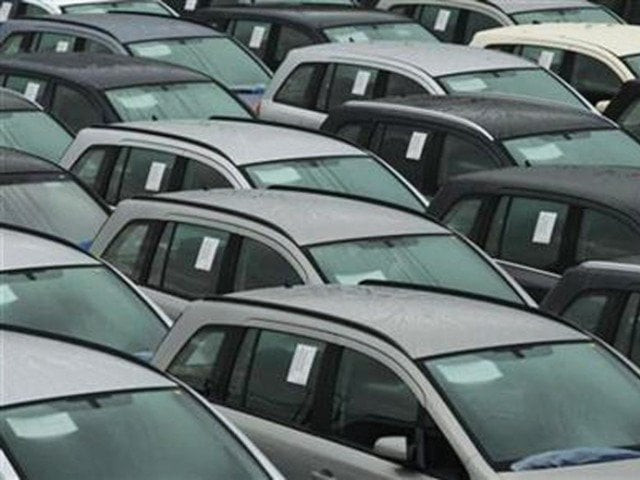Capital police recover over 70 stolen vehicles
Police still struggling to control motorbike theft even as car theft rate is down

Police still struggling to control motorbike theft even as car theft rate is down. PHOTO: REUTERS
Senior police officials claim that organised car theft from the capital has been eliminated after they busted over 40 gangs since January 2016.
A police document available with The Express Tribune shows that the Anti-Car Lifting Cell (ACLC) traced and recovered 74 stolen vehicles and 10 motorcycles from January to November this year. Of these, 15 had been stolen from districts other than Islamabad.
New police chief promises to kick out corrupt cops
This, however, was down from the 90 stolen vehicles which the ACLC had recovered in 2016. In addition to the 74 vehicles recovered, the cell had also seized 20 vehicles and eight motorcycles suspected to be stolen this year while arresting 117 suspected car thieves.
Among the major busts this year was that of a gang of auto thieves in April. This gang apparently also had some members of Azad Jammu and Kashmir (AJK) police working with it. The ACLC recovered at least 12 stolen cars from them.
Police say most of the vehicles stolen from capital are quickly spirited to Khyber-Pakhtunkhwa while some were taken to AJK. In rare cases, some stolen vehicles were taken to parts of Punjab.
If the vehicle is an older model, the thieves sometimes disassemble it and sell the parts in the market. However, most of the stolen cars are sold once their engine numbers, number plates and documents are tampered with. Sometimes, thieves would resort to the practice of cut-and-weld.
With such stolen and tampered vehicles are being sold in the market, the police have advised the public to have the car’s documents and engine verified with Rescue 15 and the Police Forensic Science Laboratory before purchasing a used car.
Officials added that in recent months, dozens of vehicles which were brought to the police forensic laboratory for examination were found to be tampered.
While police claims to have minimised auto theft in Islamabad, these claims have been laid bare by the number of car theft complaints the police receives. Officers too openly confess that they have not been able to control vehicle theft — particularly that of motorbikes.
The city is dotted with over 2,000 closed circuit television (CCTV) cameras working under the Safe City Project. Of these, 208 cameras can read number plates on vehicles.
However, officers maintain that the cameras do not help them in every case, since the cameras are often unable to clearly capture the number plate or the face of the person driving the suspect vehicle.
“We get help from these cameras in around 25 per cent of auto-theft cases only,” said one officer, adding that the rest of the cases have to be traced through traditional police investigation techniques.
Officials believe that the ACLC can be made more effective if it is provided with the requisite resources and manpower.
Currently, the cell is working with only 30 men and over the past year, this small team handled around 200 auto-theft cases. Of these 11 are still under investigation while some remain untraced.
SP-Investigation Zeeshan Haider, who heads the ACLC, said that the cell’s performance over the past two years had been remarkable.
“It has shown some commendable performance over the past year as well as this year,” the SP said.
Police Training: Passing-out parade held
“At ACLC, our work is based on public awareness, prevention and detection,” he explained, but added that they still had room to improve.
“We need to strengthen our specialised units such as the ACLC since the world is moving towards specialisation instead of generalised police infrastructure. ACLC can be made more effective by pumping in manpower and resources along with technology initiatives,” he said.
The police had also recovered around 20 tonnes of hashish, up from 10 tonnes of hashish recovered last year.
Published in The Express Tribune, December 26th, 2017.



















COMMENTS
Comments are moderated and generally will be posted if they are on-topic and not abusive.
For more information, please see our Comments FAQ